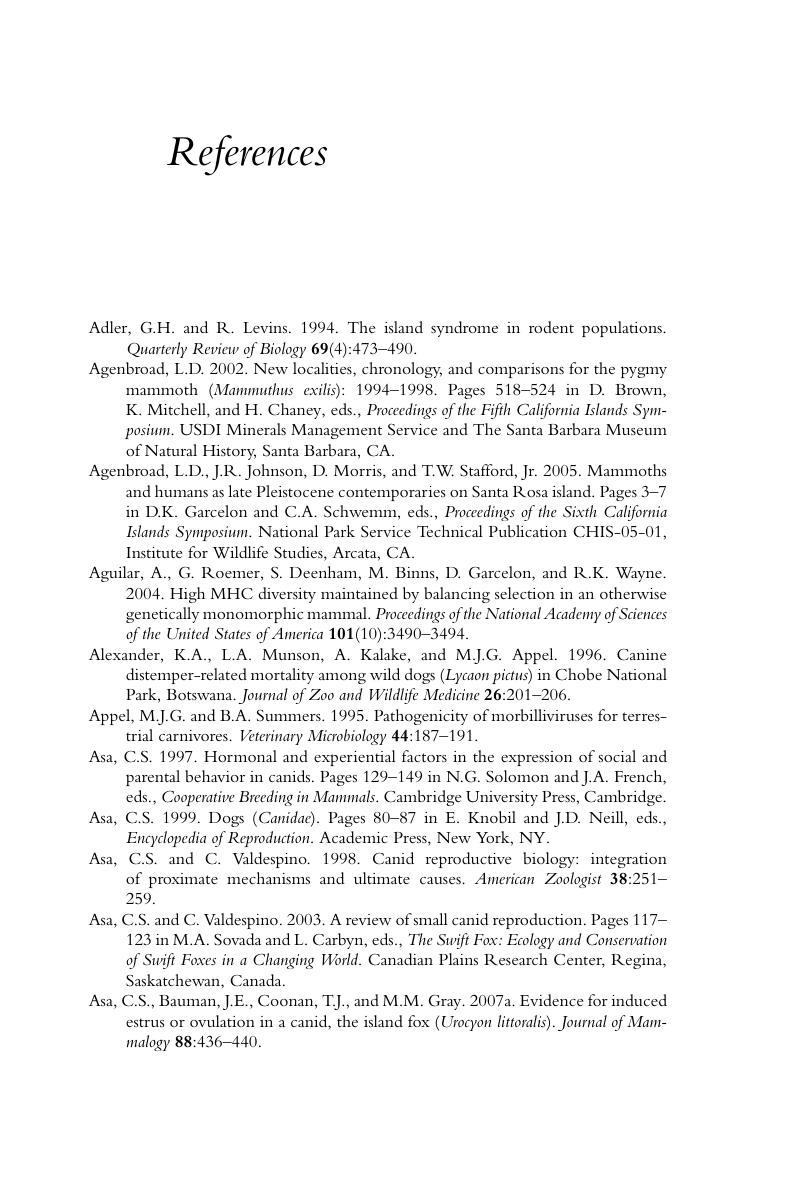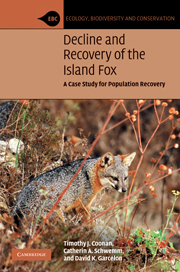Book contents
- Frontmatter
- Contents
- Foreword
- Acknowledgments
- 1 Introduction
- 2 Evolution and genetics
- 3 Social structure, reproduction, mortality and survivorship, and population dynamics
- 4 Food habits, habitat use, activity patterns, and dispersal
- 5 Golden eagles and the decline on the northern islands
- 6 Ecosystem recovery
- 7 Disease and decline on Santa Catalina Island
- 8 Recovery actions
- 9 Recovery actions
- 10 Reproductive biology, by Cheryl Asa
- 11 Diseases of island foxes, by Linda Munson
- 12 Zoos, education, and public participation
- 13 Managing recovery
- 14 The ecological role of island foxes
- 15 Conclusion
- References
- Index
- References
References
Published online by Cambridge University Press: 05 October 2010
- Frontmatter
- Contents
- Foreword
- Acknowledgments
- 1 Introduction
- 2 Evolution and genetics
- 3 Social structure, reproduction, mortality and survivorship, and population dynamics
- 4 Food habits, habitat use, activity patterns, and dispersal
- 5 Golden eagles and the decline on the northern islands
- 6 Ecosystem recovery
- 7 Disease and decline on Santa Catalina Island
- 8 Recovery actions
- 9 Recovery actions
- 10 Reproductive biology, by Cheryl Asa
- 11 Diseases of island foxes, by Linda Munson
- 12 Zoos, education, and public participation
- 13 Managing recovery
- 14 The ecological role of island foxes
- 15 Conclusion
- References
- Index
- References
Summary

- Type
- Chapter
- Information
- Decline and Recovery of the Island FoxA Case Study for Population Recovery, pp. 185 - 206Publisher: Cambridge University PressPrint publication year: 2010



